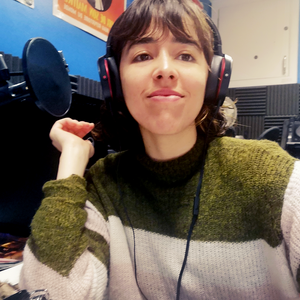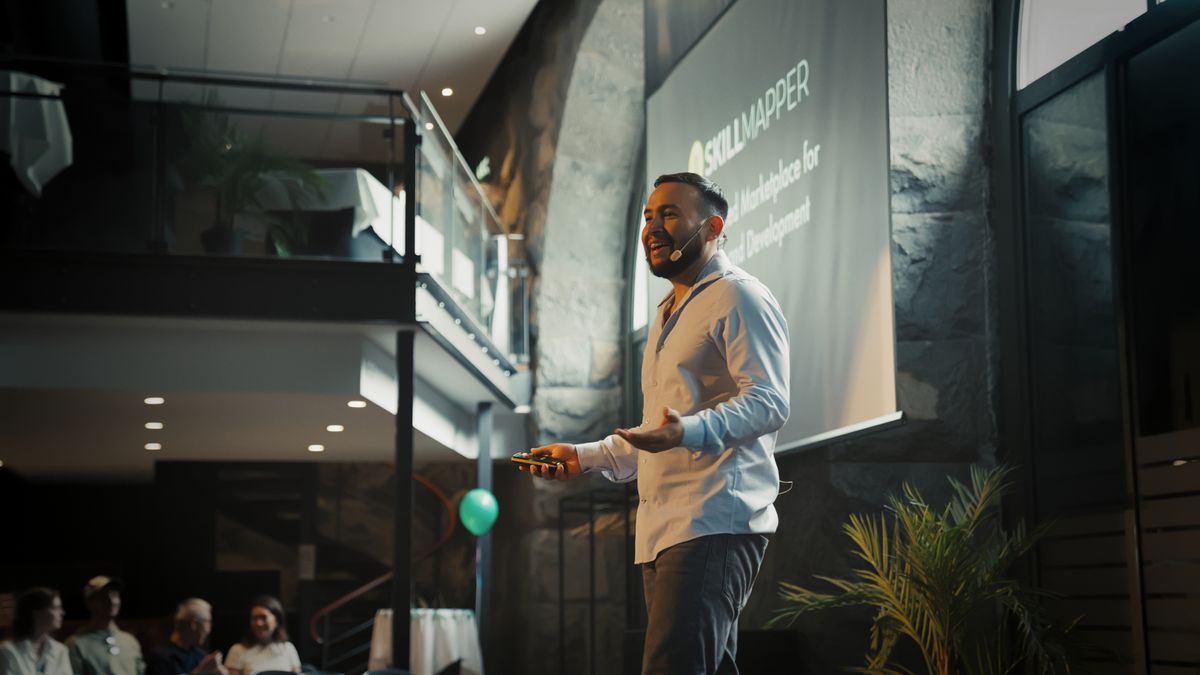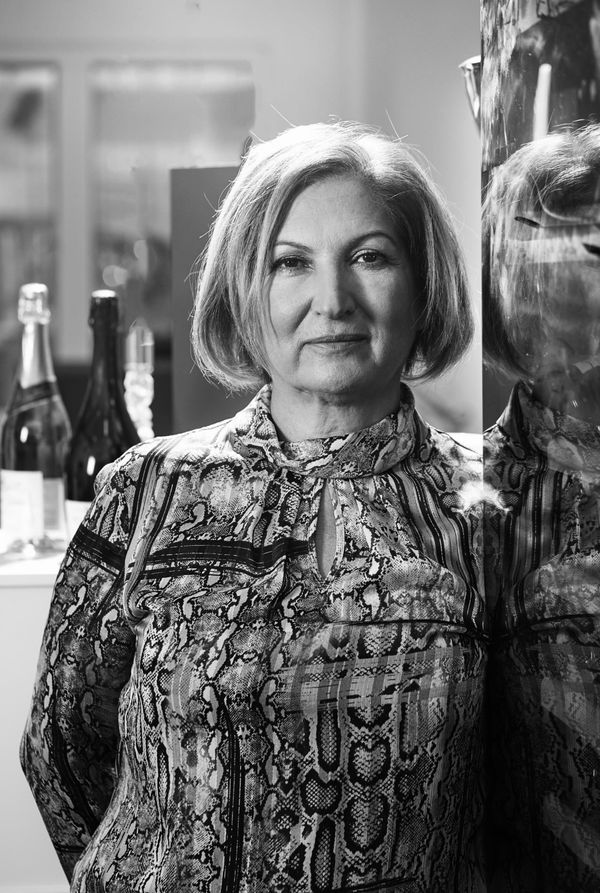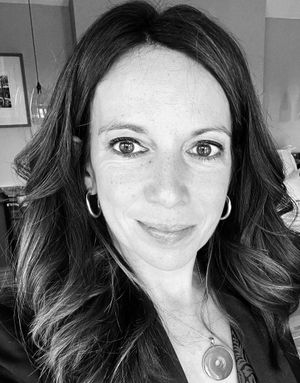Stockholm, Sweden
"Don't." This is Mario Calderon's half-joking yet extremely serious response when I ask him about the advice he would offer to aspiring entrepreneurs, but he is quick to clarify this seemingly disparaging remark.
"I would not recommend being an entrepreneur to anyone: it's hard, terrifying, and risky. Having said that, it doesn't get more rewarding than this."
Mario is the Peruvian co-founder and CEO of SkillMapper — a tech startup that scours the internet to find the best online courses on anything from computer science to business administration.
After realizing that the online world was plagued by self-proclaimed gurus promising to share foolproof, life-changing knowledge to anyone with internet access and a credit card, he realized there was a need for a discerning tool that could help self-learners cut through the noise to find the best options available.
SkillMapper is a Software-as-a-Service (SaaS) Marketplace, an umbrella term for platforms that facilitate users in discovering, purchasing, and reviewing cloud-based applications and products. Think of it as Booking.com but for online courses rather than hotels.
SkillMapper's premise is that the internet has become too crowded, and users struggle to discern which content is valuable and worthy of their time and money. "Up to this point, the internet has been all about content creation," Mario asserts. "But I'm convinced we are now entering the era of content curation."
SkillMapper's technology finds and curates online courses by scraping the comments and rating sections daily. They've discovered that many education platforms delete negative reviews, so reviewing the content daily allows them to stay on top of what customers say. "It's not just predatory individuals that are flooding the internet, but platforms," explains Mario. "Online education is unregulated, and people are anxious to stay on top of changing trends, which can lead to bad practices becoming the norm."
If scam artists have flourished on every corner of the internet, however, it's because there's a market for them. In a world that has come to expect instant gratification, is there room for a tool to help us choose the arguably longer and more difficult way?
Like many entrepreneurs before him, Mario would quickly discover that turning a great idea into a sustainable economic enterprise is anything but easy.
Teaching himself how to move up
Mario's interest in the world of online self-education stems from his own experience of its transformative power. While studying Business Administration as an undergraduate ("you know, the type of degree a middle-class kid pursues when he has no clue what he wants to do with his life"), he discovered and fell in love with programming and data science.
After completing a master's in Business and Marketing in 2010 in the Netherlands, Mario knew he wanted to be in tech. He applied for a position at Facebook, a relatively new and quickly booming social media site. The work was not glamorous. "I started off as a market analyst. I had a master's in Business and Marketing and was basically moderating content," Mario admits.
With his foot in the door, however, he took the initiative to learn programming and data visualization, eventually transitioning to a data scientist position at Facebook in less than five years. "I taught myself what I need to know to advance my career. This showed me that starting your professional life didn't have to be the end of your learning stage. You can still learn completely new skills while at your current job."
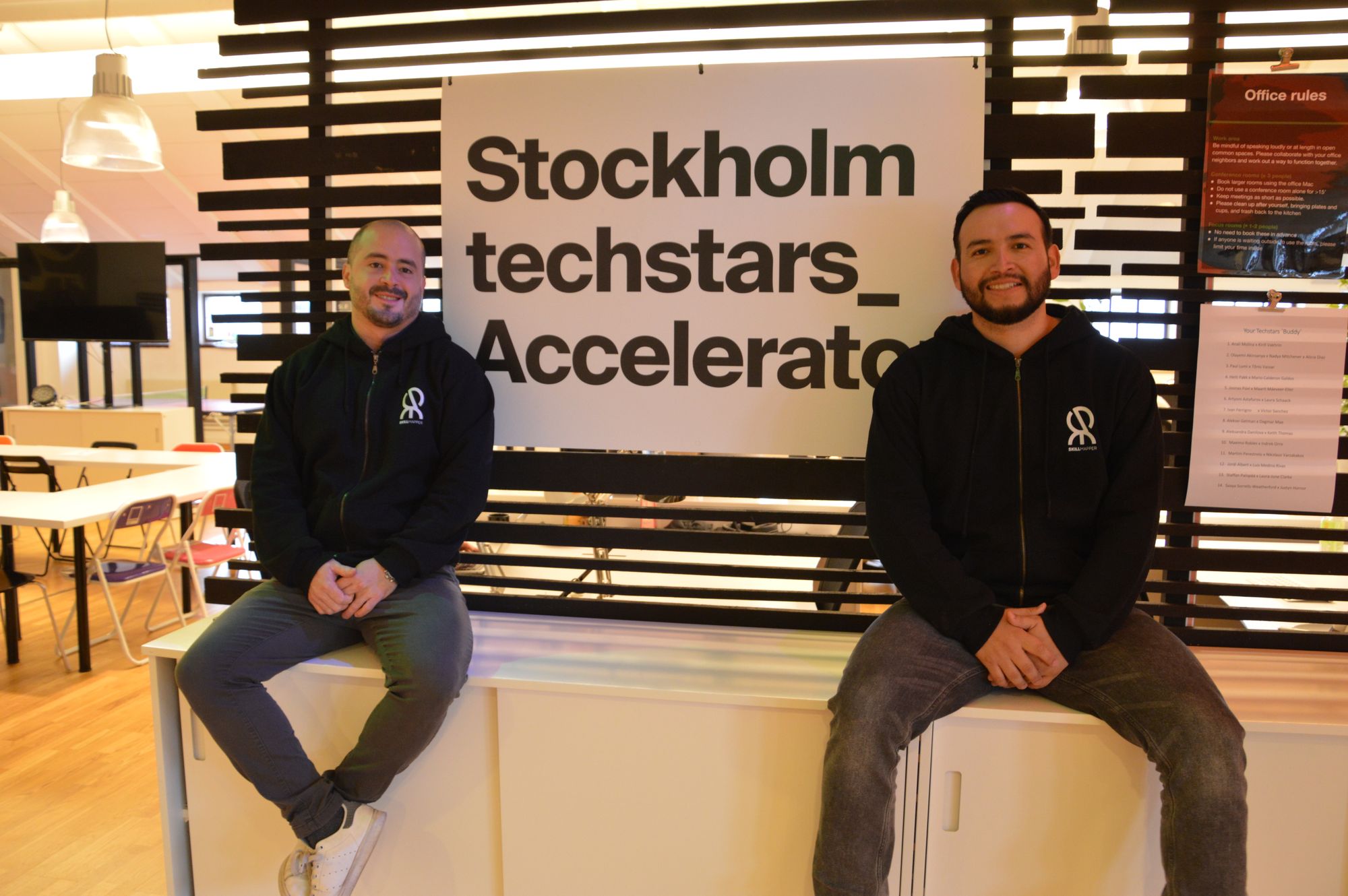
Embracing uncertainty
After a decade-long stint at Facebook, the pandemic outbreak prompted him to yearn for a fresh start. He craved a career path that allowed him to have a more direct impact on education and make a positive difference in people's lives, but working for a major corporation like Facebook imposed inherent limitations on what he could do. However, leaving a coveted position at an established firm and embarking on the entrepreneurial journey meant trading the security of a stable job for daunting uncertainties.
In 2020, he met his partner Víctor Sánchez, a computer scientist from Peru and living in Europe. "I never wanted to be a solopreneur," he says. "So I was actively looking for someone to join me in this adventure." Together, they developed a search platform for online courses, which eventually expanded to include articles and videos to cater to the diverse formats prevalent in online learning. Finally, in May 2021, after a year of dedicated work — and after managing to raise 100k from a Colombian angel investor — he took the leap. Mario bid farewell to Facebook as their business went live.
While Mario knew he was making a risky decision, he's now adamant that nothing could have prepared him for the true difficulties of entrepreneurship. Reflecting on the past two years, he candidly admits the multitude of mistakes they have made: overreliance on social media promotion; an assumption that website visits would seamlessly translate into monetization; and an excessive focus on adding more features to the site, erroneously believing that diversification, rather than specialization, would grant them a competitive advantage.
In 2022, things seemingly began to look up. Mario credits their decision to invest in SEO optimization for a surge in organic, monetizable traffic on their website. The number of views began to climb, escalating from a few thousand to 12,000 users per month, eventually reaching 20,000 monthly users at the time of writing. These were high-quality views: people found their site because they were actively searching for its services.
However, the harsh reality soon set in. Despite experiencing a significant increase in website visits and finally generating revenue by October 2022, they made at most $400 per month since they had to share their income with the platforms that provided the courses. Things were going arguably well, but the business was anything but economically viable.
Time to pivot
Mario and Victor decided to give it one last shot. In March 2023, the company pivoted from a B2C (business-to-consumer) model to a B2B (business-to-business) one. Rather than focusing on helping individual users find relevant courses, SkillMapper started catering to companies keen on providing their employees learning opportunities. Levering AI and daily scraping technologies, they're assisting employees in finding the best route to fulfill their professional expectations.
Since Mario and Victor currently live in Sweden, where Mario originally relocated to raise a family with his Swedish partner, the company is now focusing on the European and Scandinavian markets. Mario believes it's the perfect launchpad for the new version of SkillMapper. He explains that terminating employees is extremely difficult in Europe, particularly in Scandinavia, so companies are more inclined to invest in continuous training for their staff.
The meteoric improvements in AI technologies have fueled concerns about job automation, meaning corporations need to retrain their workers to perform new tasks that can't be so easily outsourced to artificial intelligence. "In other regions, offering your workers learning opportunities is a nice to have. In Europe, it's a must-have, so companies are willing to invest in services like SkillMapper," Mario explains.
Sweden also seems to be the right place for two Peruvian entrepreneurs like themselves. SkillMapper was born when they were both living in France. Mario acknowledges that, as a foreigner, he faced difficulties assimilating into the French entrepreneurial culture. "France still thinks about building products for its own people," he says. "Sweden highly values diversity because it's always looking outward."
He admits that while their nationality has been a plus in Sweden, their all-male team has been anything but. As they have benefited from Sweden's commitment to diversity, they also have to learn to embrace it themselves.
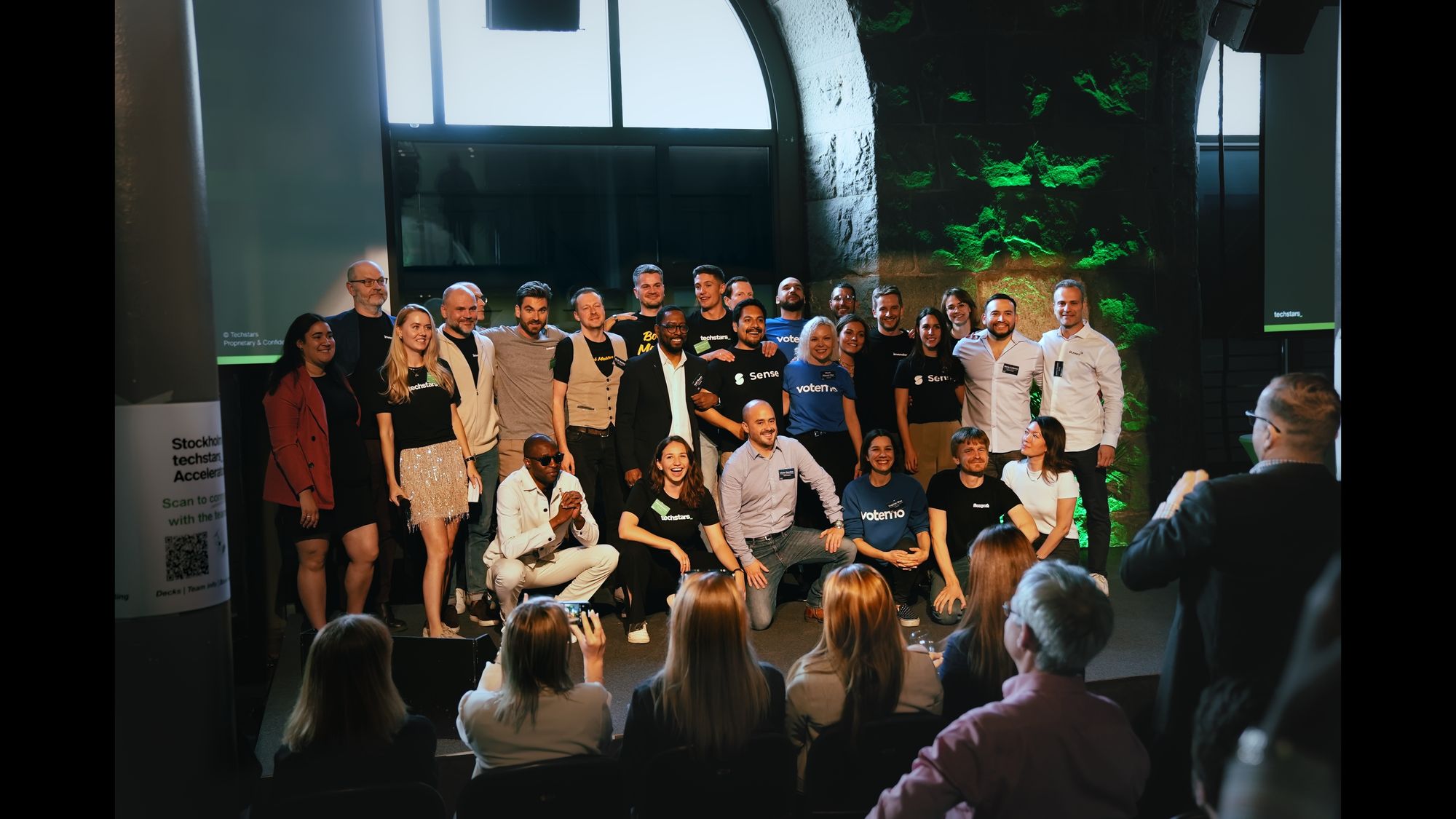
The big turning point
Despite an admittedly rocky first couple of years, SkillMapper was recently amongst the top 1% of applicants that made it to the 2023 Stockholm Techstars Accelerator.
Mario shares that three defining factors allowed them to get the Techstars funding. The first was having the chemistry the board saw between him and his partner and how that made for a compelling origin story. The second was their personal strengths and background as data and computer scientists. And the third was, in a way, coincidental: it was about timing and the growing anxiety around AI and what it will mean for workers.
For Mario, the 120k provided by the program has been more than an endorsement, they've been a much-needed lifeline. "We were ready to give up," he admits. "Either we got Techstars, or we both had to look for a different job. We are extremely passionate and driven, but we have families and responsibilities, and there's only so much you can stretch it."
The new funding will allow them to adapt the SkillMapper model to better align with current trends. One development they're looking forward to is their ongoing work on an AI-powered chatbot designed to help users determine which courses to take based on their envisioned career paths. Moreover, while the B2B model has worked in Scandinavia, expanding to other markets, where companies arguably have fewer resources and interest to invest in their employees' education, will inevitably prove to be a new challenge.
In a way, Mario's journey with SkillMapper reflects the journey of every self-learner as they realize they need to adapt and pivot to changing circumstances. He shares some hard-learned wisdom for other self-starters and hopeful entrepreneurs out there.
"Be passionate about solving a problem, not about your product, cause it will change over and over. And don't fall for people, books, or programs promising foolproof paths to success: they don't exist. But there's nothing as rewarding as being an entrepreneur. I wouldn't wish it on anyone, but there's nothing else I'd rather do."
